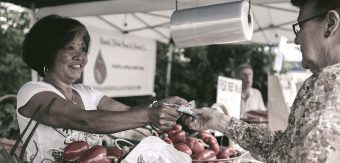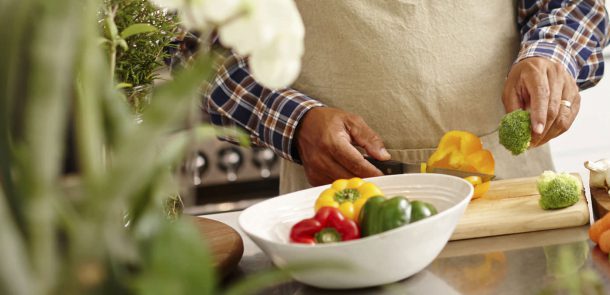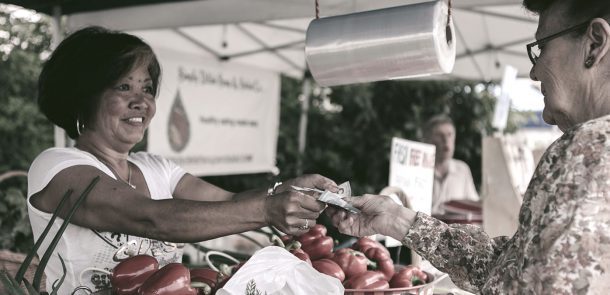When people talk about how to reduce waste at the grocery store or elsewhere in their lives, the term “zero waste” is often used.
Raise your hand if you’re thinking: “Zero waste? I could never do that.”
While the zero waste philosophy is a great one, it can seem rather daunting.
But really, it’s not about perfection. It’s about taking steps, big and small, to reduce the amount of trash we’re producing.
A new kind of grocery store
I’m one of the founders of Nada, a package-free grocery store in Vancouver.
The business was born from the idea of taking simple, tangible steps to reduce food waste and plastic pollution (two problems in our current food system that have a significant impact on the health of oceans).
The concept at Nada is simple: customers refill their own containers with food, allowing them to decrease the amount of plastic packaging sent to landfill and potential food waste by only buying what they need.
Here are my top 10 tips for reducing your shopping waste.
1. Consolidate
Consolidate your shopping trips and shop with a list; you’ll save money, reduce your fuel consumption, and curb impulse buys.
2. BYOB (Bring Your Own Bags)
Always use reusable carry bags. Stash them in your backpack, purse, bike basket or trunk so that you always have them.
3. Go for bulk
Buy in bulk and only what you need. Keep in mind that very large bulk purchases typically get tossed before they can be eaten.
4. BYOC (Bring Your Own Containers)
Bring reusable containers, jars, cloth bags, etc. to refill with bulk dry and liquid items. More and more businesses are willing to let you refill your own containers, so look for and support them. For example, Nada has a system for tracking the weight of your containers, so you’re not paying for the added weight when you check out.
5. Use containers for more than food
Use large glass jars or containers to fill up on toiletries and household cleaning supplies, such as shampoo, conditioner, vinegar, dish soap, laundry detergent, etc.
6. Go for glass
Purchase dairy in glass jars whenever possible. Milk, ice cream, and yogurt containers with a deposit system are becoming more commonplace. A great example is Vancouver’s Earnest Ice Cream.
7. Refill your drinks
Hold on to growlers and clean empty wine bottles to refill at local breweries, wineries, and make-your-own bottling events.
8. Shop at farmers markets
There’s no better way to support your local food system than buying local and organically grown produce at farmers markets. Bonus points if you bring back the empty egg cartons and berry containers – many stands are happy to reuse these.
9. Choose sustainable transport
Choose sustainable transport whenever possible: walk, bike, take public transport, use a rideshare program, or carpool. Your heart and lungs will thank you, too!
10. Vote with your dollar
Support companies that are champions of social and environmental responsibility and those that are making the world a better place. Although this list is certainly not exhaustive, certifications such as B-Corp, Fair Trade and 1% for the Planet are a good place to start.
If cleaning up the environment is something you’d like to help with, you can help to grow the zero waste movement in your own life and show others how easy it can be to accomplished.
Live in Vancouver and want to learn more about zero waste living, the local food system, food waste, or plastic pollution? Join the conversation at Zero Waste Vancouver on Facebook.
Originally published August 2017.









